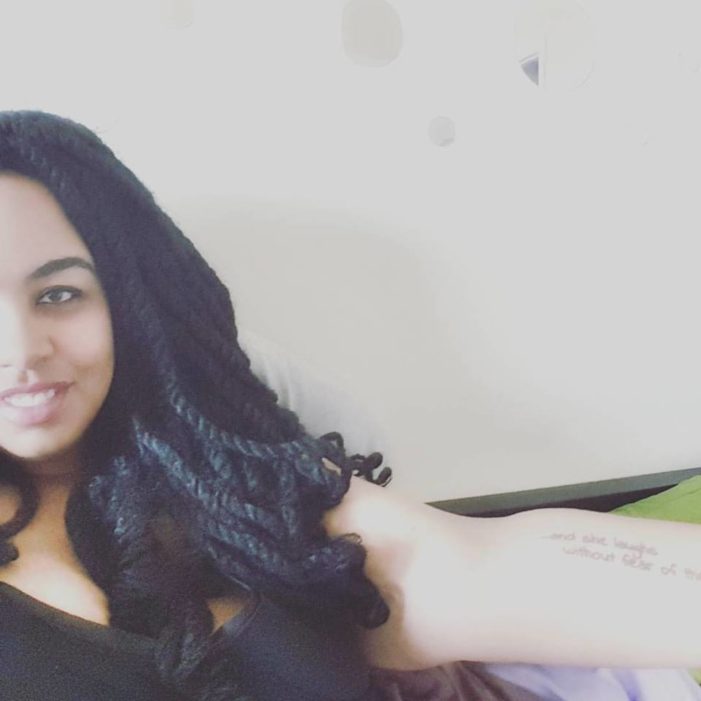The Abernathy contributor spotlight series shines the spotlight on our brilliant authors. If you’d like to write for Abernathy, please submit your best work here.
Why is writing important to you?
Writing has always been the way I share myself with the world. I’m a complete and total introvert. So when I write, I share my thoughts, my feelings, and my perspective freely with the world.
I also believe that black women have a duty to speak (write) for ourselves and help shape the (inter)national narrative. When our stories are omitted from the narrative, our lives are written out of the history.
I believe we all have stories to share, so we’d better get busy telling them.
What keeps you busy when you’re not writing?
When I’m not writing, I’m busy fighting for social justice. Currently, I’m working as the National Director of Membership for the NAACP. I love knowing that my professional background in fundraising and marketing is supporting the work of one of the most effective, grassroots driven advocacy organizations in the nation.
Aside from work and writing, I’m Mommy to the most amazing little girl. She’s a tremendous source of inspiration for me, and I make it a point to share all the beauties of life with her.
What piece are you most proud of and why?
I’m most proud of The First Time. It was by far the most honest thing I’ve ever written. And by honest, I mean self reflective. It was simultaneously painful and cathartic to write. I’ve grappled with the pain/confusion of that experience for years, and writing it (coupled with therapy, which I strongly recommend to ALL people), helped me face truths and grey areas in my relationship history.
What book or books have most influenced your thinking or writing?
Ha! Where should I start?
Octavia Butler’s entire body of work and existence opened doors of possibility for me, and the knowledge that I can carve out my own place in the literary world.
Neil Gaiman’s The Ocean at the End of the Lane helped me see the beauty and power of childhood stories on our adult experiences.
C.S. Lewis’ Till We Have Faces and Victor Lavalle’s The Ballad of Black Tom showed me that even the most famous of stories can be made new through the voices of “minor characters”.
Lewis Carroll’s Alice’s Adventures in Wonderland & Through the Looking Glass, and Albert Camus’ The Stranger taught me to see the absurd.
And then there’s everything Gabriel Garcia Marquez ever wrote. And Edwidge Danticat. And Alice Walker. And Philip K. Dick, too.
Who is your favorite writer or author? Where should people start if they want to read this person’s best work?
Octavia Butler. Hands down. Not only was she a pioneer in the genre, she is pretty much the godmother of afro-futurism.
Most people will tell you to start with her Parable series, and while you can’t go wrong using the series as a starting point, I think Fledgling is her most astounding work. As you read it and begin to visualize what she’s writing, you feel uncomfortable. And she wants you to be unnerved, to be uncomfortable – because that discomfort is key to “unnormalizing” notions of race, gender, and literary assumptions.
The final section of the book may strike some as slow, but even that is intentional – as the main character advocates for her very existence before a jury that may see her as the ultimate abomination.
It’s just a great book, so go ahead and read it.
Where can our audience find out more about you?
If you’re terribly interested, you can find most of my musings at on Facebook. And sporadically at eloquentlypissedoff.com.
And then there are the narrative memoirs to be published soon. I’ll keep you posted.
More from Bethany on Abernathy:
- Rachel Dolezal and Defining Blackness
- Perception is Everything
- My Daddy Said Shoot
- The Black American Dream and Milwaukee
- The First Time
The Abernathy contributor spotlight series shines the spotlight on our brilliant authors. If you’d like to write for Abernathy, please submit your best work here.
